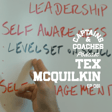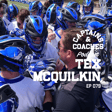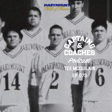
067 - Conflict Without Collapse: A Captain’s Guide to Hard Conversations
Conflict is inevitable on every team — division isn’t. In this episode we're sharpening one of the most underrated skills of great leaders: navigating tension without tearing the team apart. From locker room blow-ups to sideline disagreements, how you handle conflict will either fracture trust or forge stronger bonds.
We’ll break down the three core goals of healthy conflict resolution, the ground rules every athlete must follow, and the essential mindset shifts captains need to lead hard conversations with respect, humility, and purpose. You’ll also learn how to spot low-esteem warning signs before they derail a season and how to turn heated moments into opportunities for growth and deeper connection.
Whether you’re leading a varsity locker room or building a championship culture from the ground up, this episode gives you the tools to step into conflict with confidence — and come out with a stronger, more united team.
Training - Old Bull Program - 7 Day Free Trial - https://bit.ly/old-bull-train
Education - Why They're Not Listening: Coaching the Modern Athlete - http://listen.captainsandcoaches.com
#TeamLeadership #ConflictResolution #SportsCulture #CaptainMindset #CoachingTips #TeamBuilding #LockerRoomLeadership #TeamCaptain #AthleteDevelopment #HighSchoolSports #CaptainsAndCoaches



















